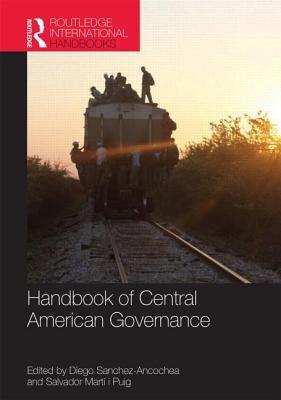

Most ebook files are in PDF format, so you can easily read them using various software such as Foxit Reader or directly on the Google Chrome browser.
Some ebook files are released by publishers in other formats such as .awz, .mobi, .epub, .fb2, etc. You may need to install specific software to read these formats on mobile/PC, such as Calibre.
Please read the tutorial at this link. https://ebooknice.com/page/post?id=faq
We offer FREE conversion to the popular formats you request; however, this may take some time. Therefore, right after payment, please email us, and we will try to provide the service as quickly as possible.
For some exceptional file formats or broken links (if any), please refrain from opening any disputes. Instead, email us first, and we will try to assist within a maximum of 6 hours.
EbookNice Team

Status:
Available4.5
36 reviews
ISBN 10: 1857436741
ISBN 13: 9781857436747
Author: Diego Sanchez Ancochea, Salvador Marti Puig
Central America constitutes a fascinating case study of the challenges, opportunities and characteristics of the process of transformation in today’s global economy. Comprised of a politically diverse range of societies, this region has long been of interest to students of economic development and political change. The Handbook of Central American Governance aims to describe and explain the manifold processes that are taking place in Central America that are altering patterns of social, political and economic governance, with particular focus on the impact of globalization and democratization. Containing sections on topics such as state and democracy, key political and social actors, inequality and social policy and international relations, in addition to in-depth studies on five key countries (Costa Rica, Nicaragua, El Salvador, Honduras and Guatemala), this text is composed of contributions from some of the leading scholars in the field. No other single volume studies the current characteristics of the region from a political, economic and social perspective or reviews recent research in such detail. As such, this handbook is of value to academics, students and researchers as well as to policy-makers and those with an interest in governance and political processes.
1 Introduction: Central America’s triple transition and the persistent power of the elite
Part I Development and income (re)distribution
2 The great transformation in Central America: transnational accumulation and the evolution of capital
3 Central American migration, remittances and transnational development
4 Natural disasters, climate change and environmental challenges in Central America
5 The distribution of income in Central America
6 Social policy in Central America: stubborn legacies, positive yet limited change
Part II Democratization and the state
7 Advancing the study of stateness in Central America: methodology and some illustrative findings
8 Authoritarian and democratic regimes in Central America
9 Institutional legitimacy in Central America: 2004–10
10 Central American (High) Courts
11 The Central American military: building democratic control in post-conflict societies
12 Drug-trafficking and governance in Central America
Part III Key political and social actors
13 Political parties: the right
14 Political parties: the left
15 The transformation of Central American economic elites: from local tycoons to transnational business groups
16 Social movements in Central America
17 Indigenous and Afro-descendant social movements in Central America
Part IV International relations
18 Central America’s relations with the United States of America
19 Central America’s relations with Latin America
20 Regional integration in Central America
21 The role of international financial institutions in Central America
Part V Country experiences
22 Costa Rica
23 El Salvador
24 Guatemala
25 Honduras
26 Nicaragua
handbook of central american governance
us government handbook
american government o'connor pdf
our american government book
pdf american government
Tags: Diego Sanchez Ancochea, Salvador Marti Puig, Central, American